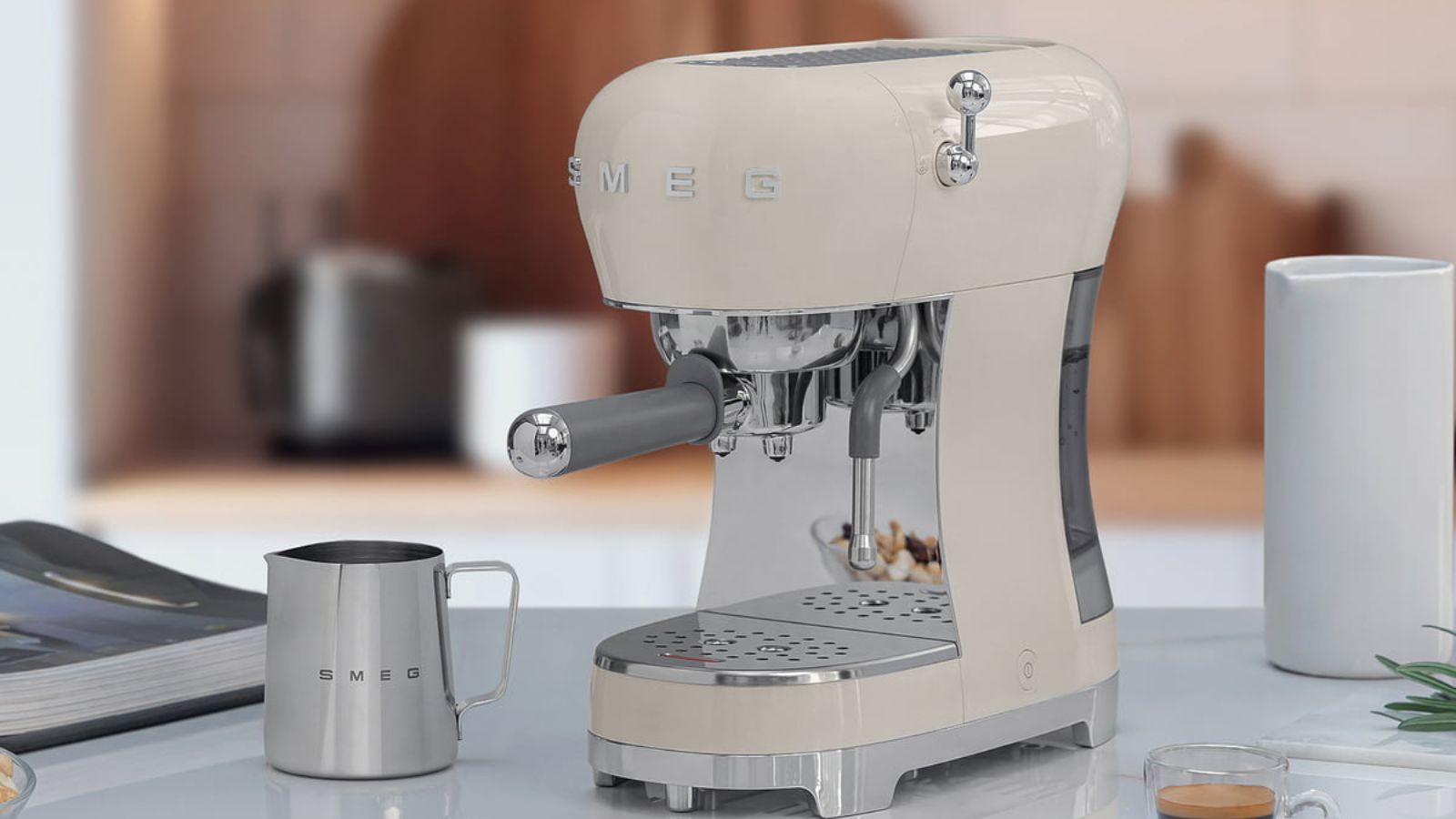
The Smeg ECF02 is the brand's latest, upgraded espresso machine. It comes with a new control panel, an easy-to-use steam wand, and an extra-retro design. On paper, the upgrades look good, but I was keen to see them in action.
As a former barista and H&G's coffee expert, I've tested over 60 coffee makers as well as some of the best espresso machines in the world. I used the ECF02 to make espressos, Americanos, and cappuccinos. I would love this as much as the rest of their coffee makers. Spoiler alert: I did.
It certainly scores top marks for style, simplicity, and the coffee basics. There's a lot to love, but also some quirks that you'll need to learn about before you get brewing. I'll give you all the details further below.
Specifications
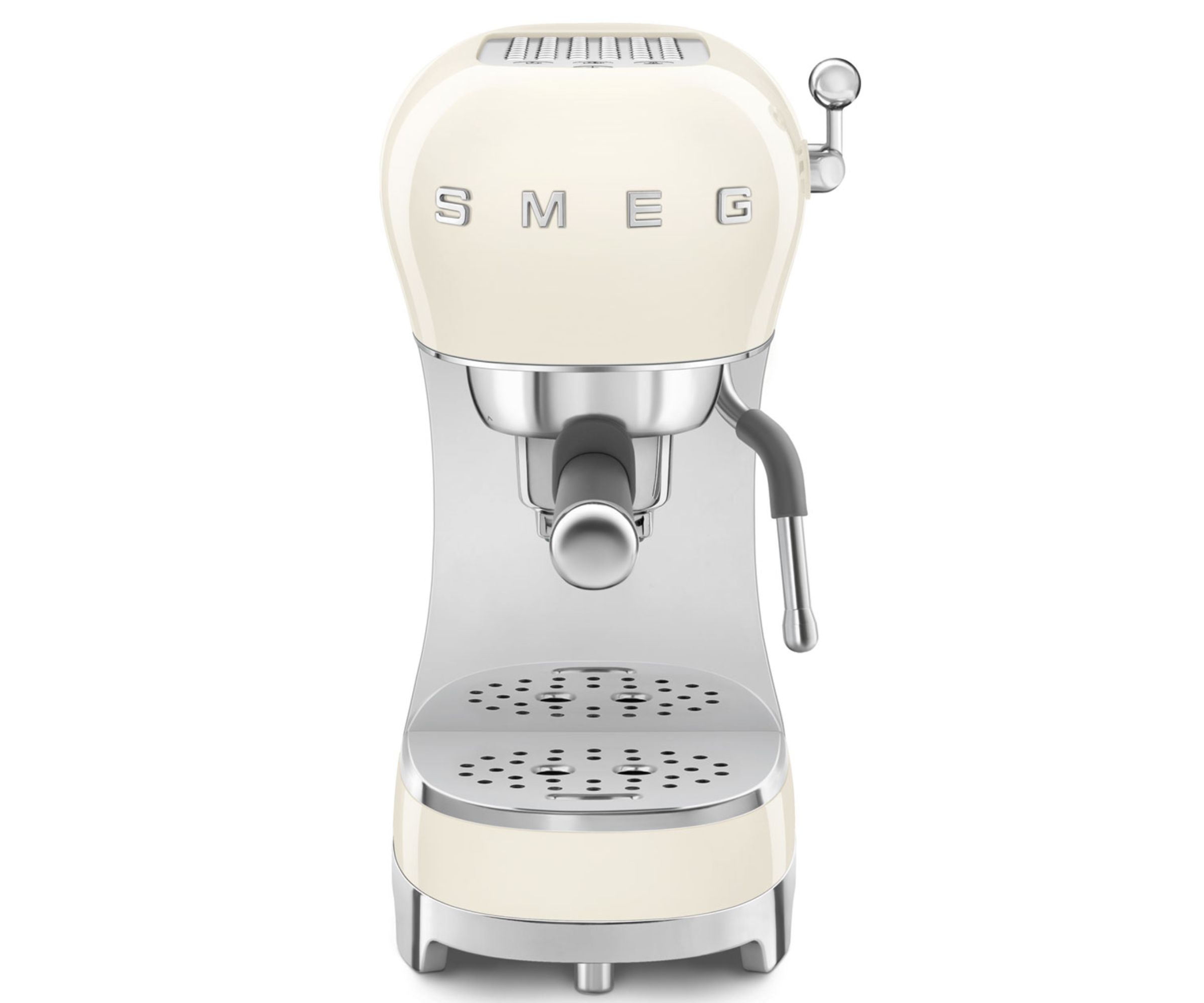
Unboxing
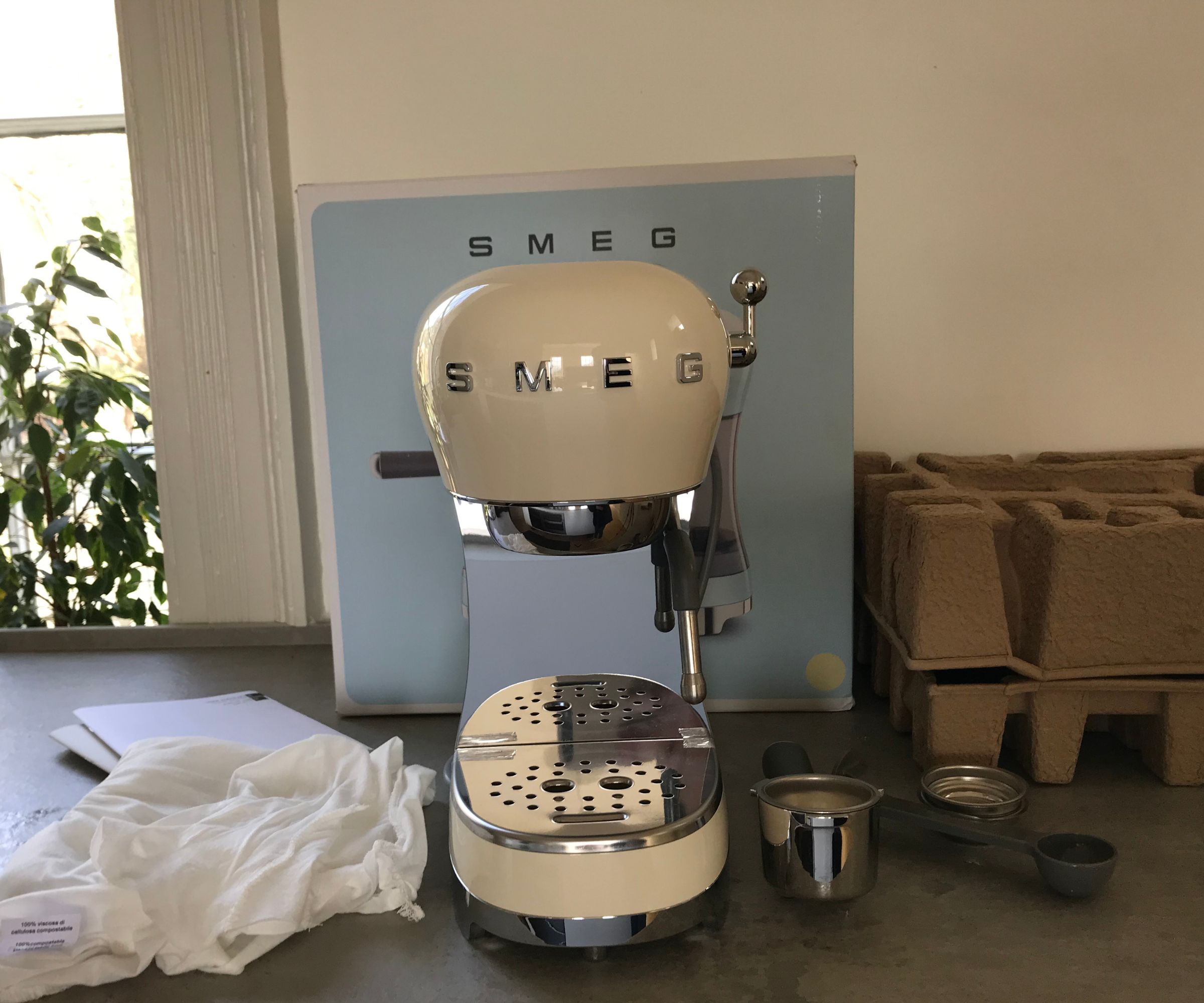
I’m really impressed with Smeg. Their products are some of the nicest to unbox in so many ways. They come in a premium-feeling, completely recyclable cardboard box. The machine is cushioned by egg-carton-style cardboard and then wrapped in some delicate cloth. I would keep the cloth because it doubles up as a dust bag or cleaning wipe. Then, you can recycle the rest.
Whilst Smeg provides some cleaning tools, a premium-feeling portafilter, portafilter baskets, and a branded tamp, they skipped the all-important milk pitcher. These are inexpensive and you can buy a stainless steel milk jug from Walmart, for example. However, it’s slightly frustrating when you want to start milk frothing and you can’t because you’re missing a key component of your coffee set-up.
On the countertop, this looked nothing short of beautiful. I tested the cream model and quickly became obsessed with it. I don’t have the space or the need for one of these in my kitchen (I already have an espresso machine) and yet I found myself desperately trying to think of reasons why I might need another one.
Who would it suit?
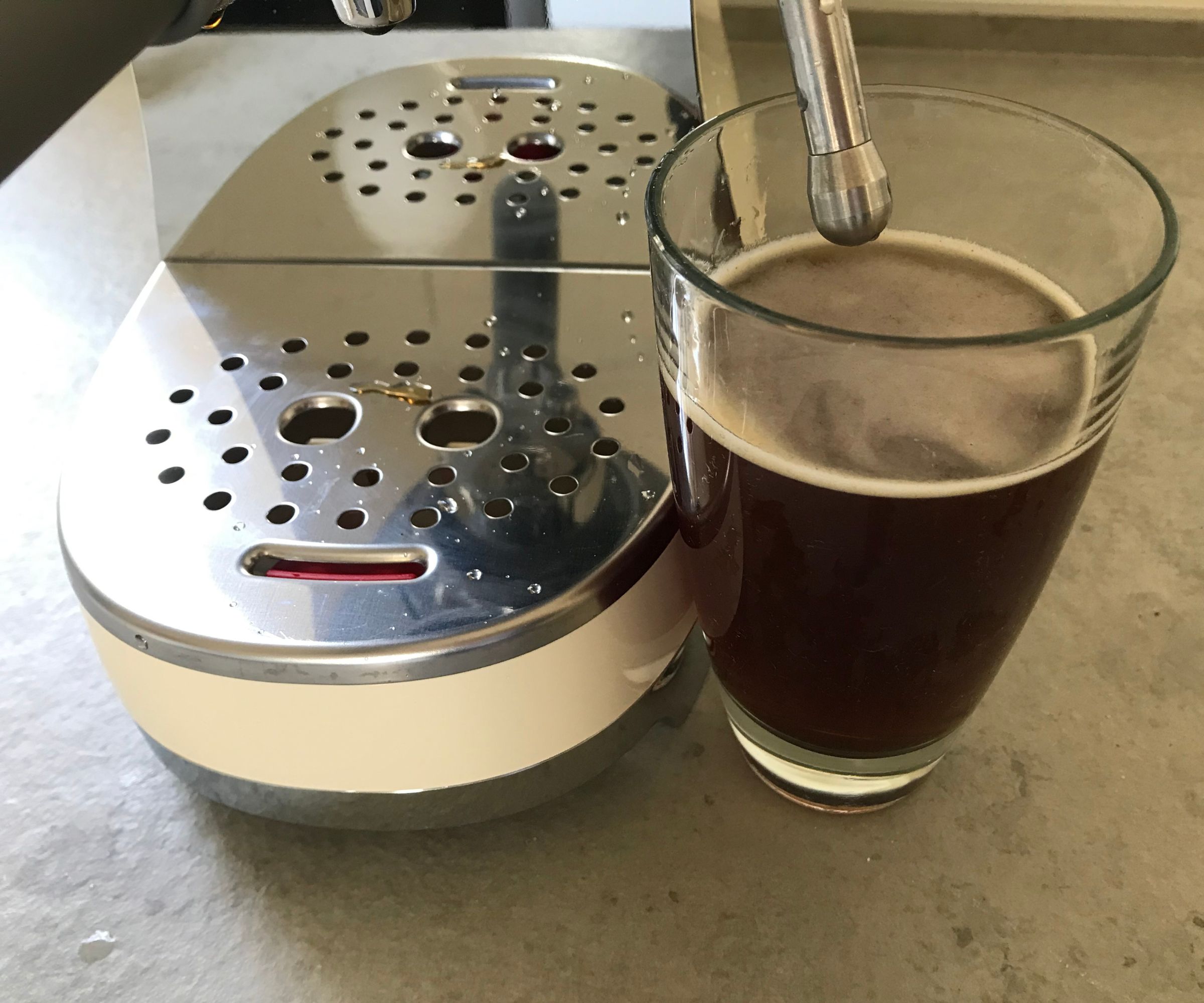
Smeg’s latest, slightly boxy update on their espresso machine makes this even more beautiful than the last model if that’s possible. I think the navigation buttons and functions are much more straightforward too. They're essentially the same, just in a much more convenient position, making this perfect for those who are new to the world of espresso machines. It’s also compatible with ESE pods, so if there’s a specific K-cup that you really enjoy, you can still brew it, barista-style, in here.
As always, this is more expensive than comparable espresso machines. It also doesn’t come with an integrated grinder, so you’ll need to make room on your countertop and in your budget for some extra investments. If you’re looking to make a style statement with your espresso machine though, this is worth every dollar.
What is it like to use?
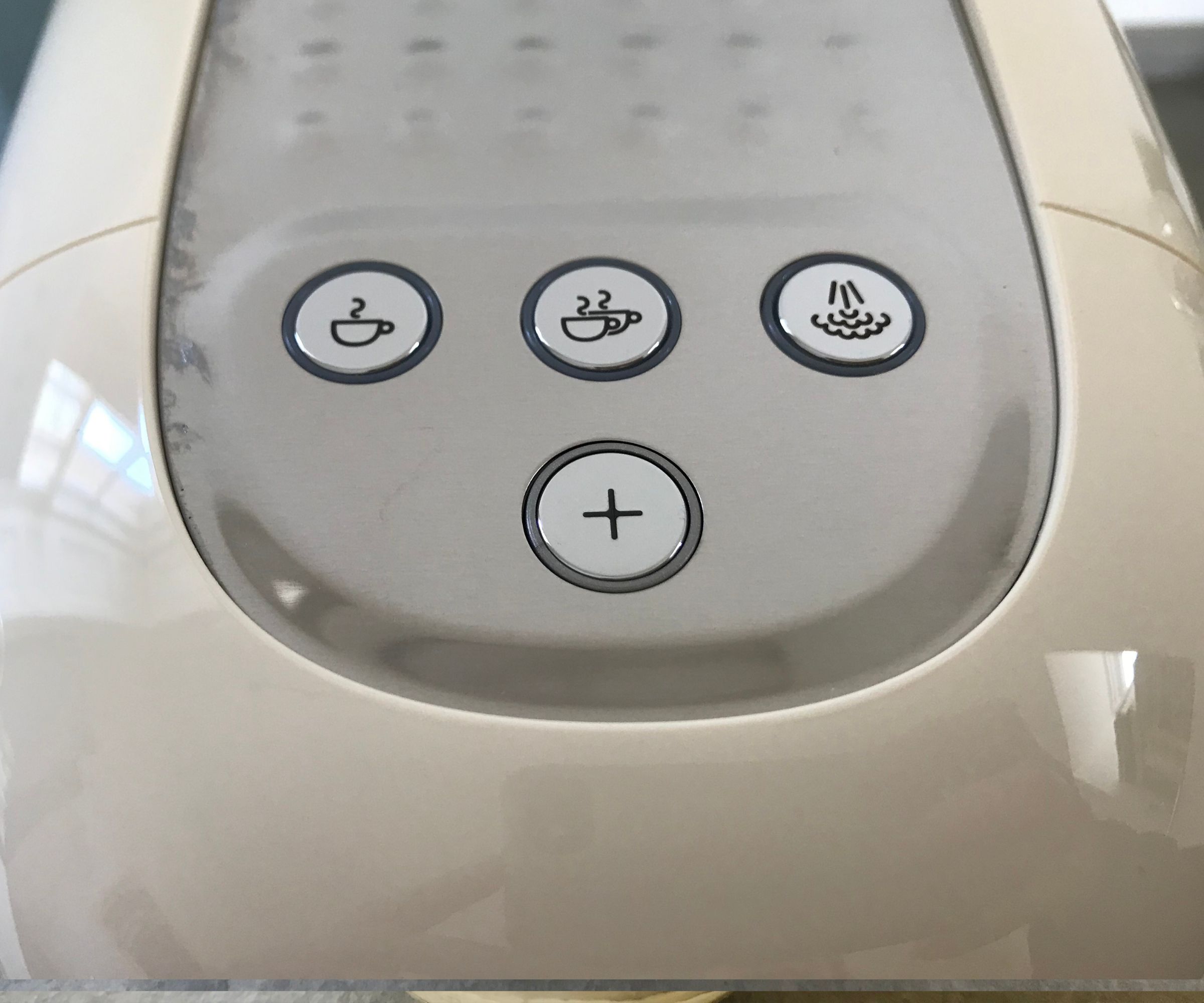
The beauty of a machine this simple is how easy it is to use. The top has three buttons: single shot, double shot, and steam wand. It might sound limiting, but this is all you need to make a cafe’s menu of coffees. You just don’t get much control over the strength and brewing, but it's brilliant nonetheless.
Once I had filled up the reservoir (which has a useful handle) and run the machine through a rinse cycle, I was ready to get testing.
Test 1: espresso
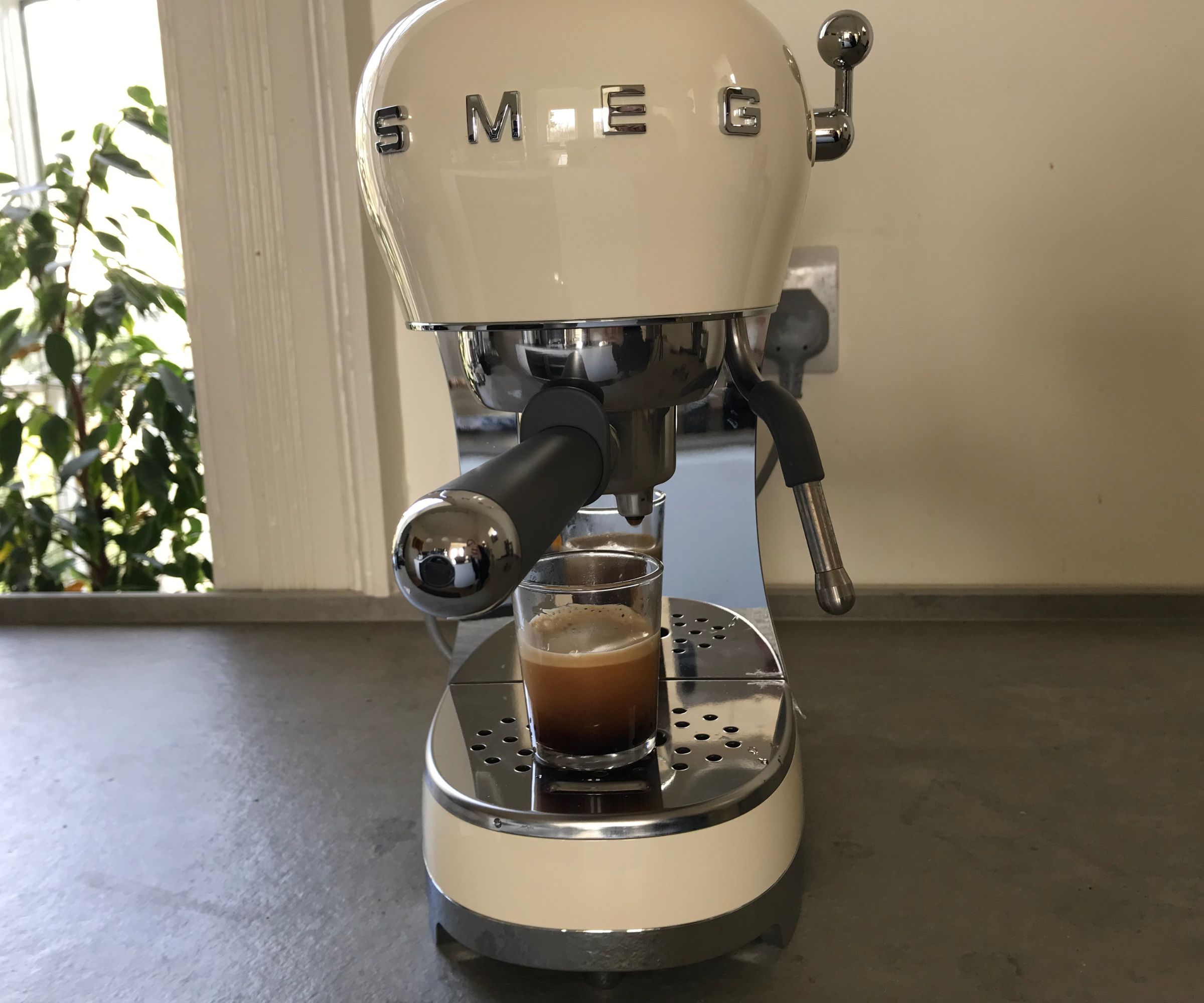
The first, most important test we put any coffee maker through is on espressos. These are the base of all specialty coffees, so it’s important that your machine can extract them at the perfect temperature.
I used Smeg’s coffee scoop to add 0.56 oz of coffee to my portafilter. I like to use 0.6 oz, so added a little extra and used their premium tamp to push down on my grounds. There’s a slight discordance between the portafilter’s plastic handle and the weighty tamp. It makes the portafilter feel a little cheap at first. However, when I locked this into the machine, I could see why it was so light. The whole of the espresso machine has been designed to feel lightweight. This means that a heavy portafilter just wouldn’t fit right. For example, when I locked my portafilter into place, I had to keep a hand on top of the machine to steady it, otherwise it would lift off the countertop.
Once in place, I extracted a single shot of espresso. Even from the first shot, this was speedy. I got a full 1.5 oz in 24 seconds. It had a nice, thick crema and delivered on full, delicious caramel notes.
I also wanted to see how the double shot of coffee would compare. This brewed in 28 seconds and was 2 oz, so a little smaller than I would have expected, but it’s still definitely a double shot. The flavors were still faultless and absolutely delicious: no complaints here.
Test 2: Americano
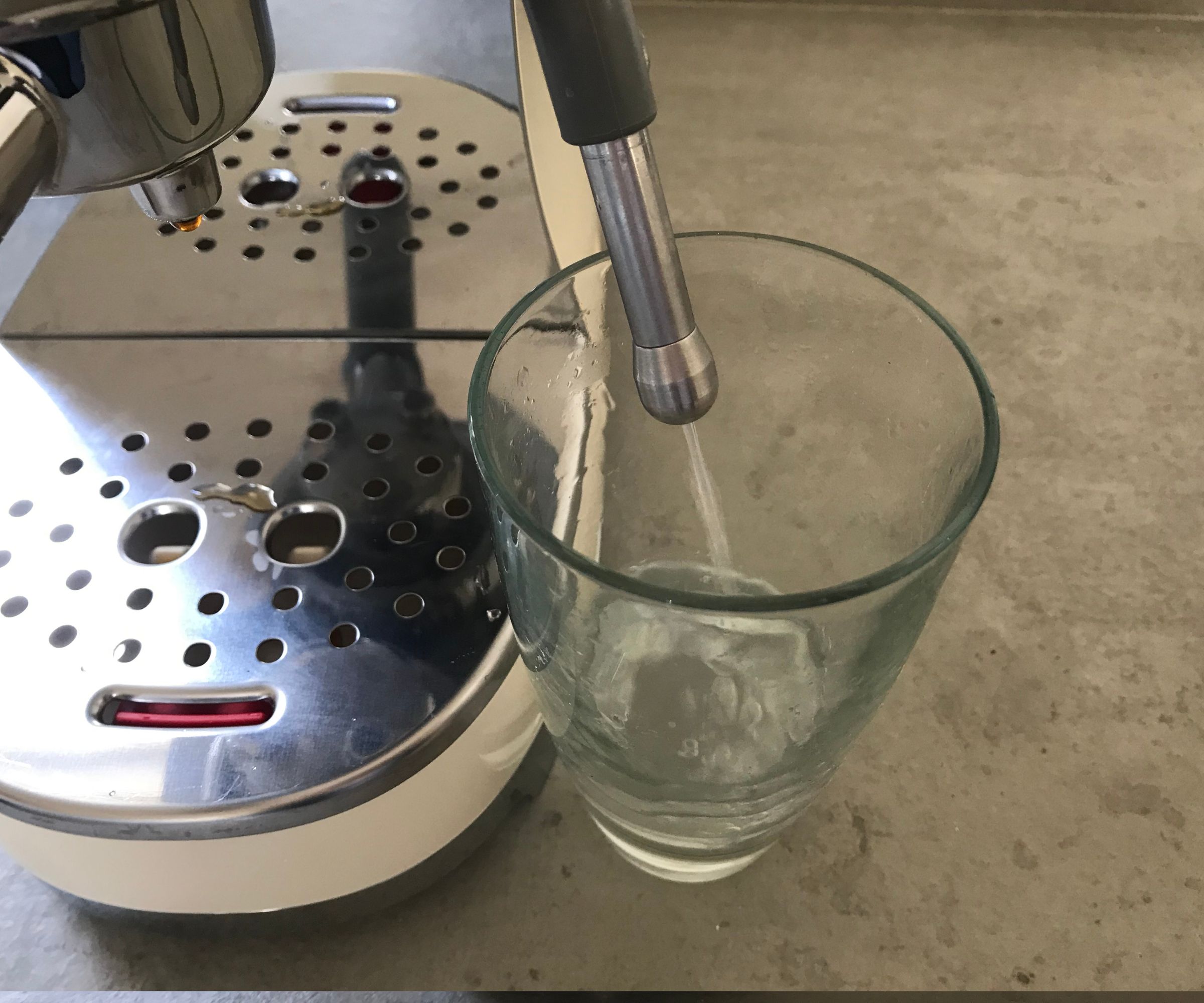
Making an Americano is easy, as long as you have low cups. I use quite tall glasses and mine couldn’t quite fit under the brew head. Instead of holding my Americano glass at an angle, I brewed a shot of coffee into my smaller cups and added it to a glass hot water, that comes out the steam wand. Word of warning: the hot water pressure is high. I was pleased not to already have my espresso in the cup, because I have a feeling there would have been quite a few coffee splashes on me and my countertop. Obviously, as the glass fills up, there’s less splashing, but you’ll still need to be careful.
The water wasn’t boiling, which is exactly what you want for coffee. Once I had my hot water and espresso together, it was 195 degrees, perfect for drinking straight away. The flavors were rich and bold, although not very strong.
Test 3: cappuccino
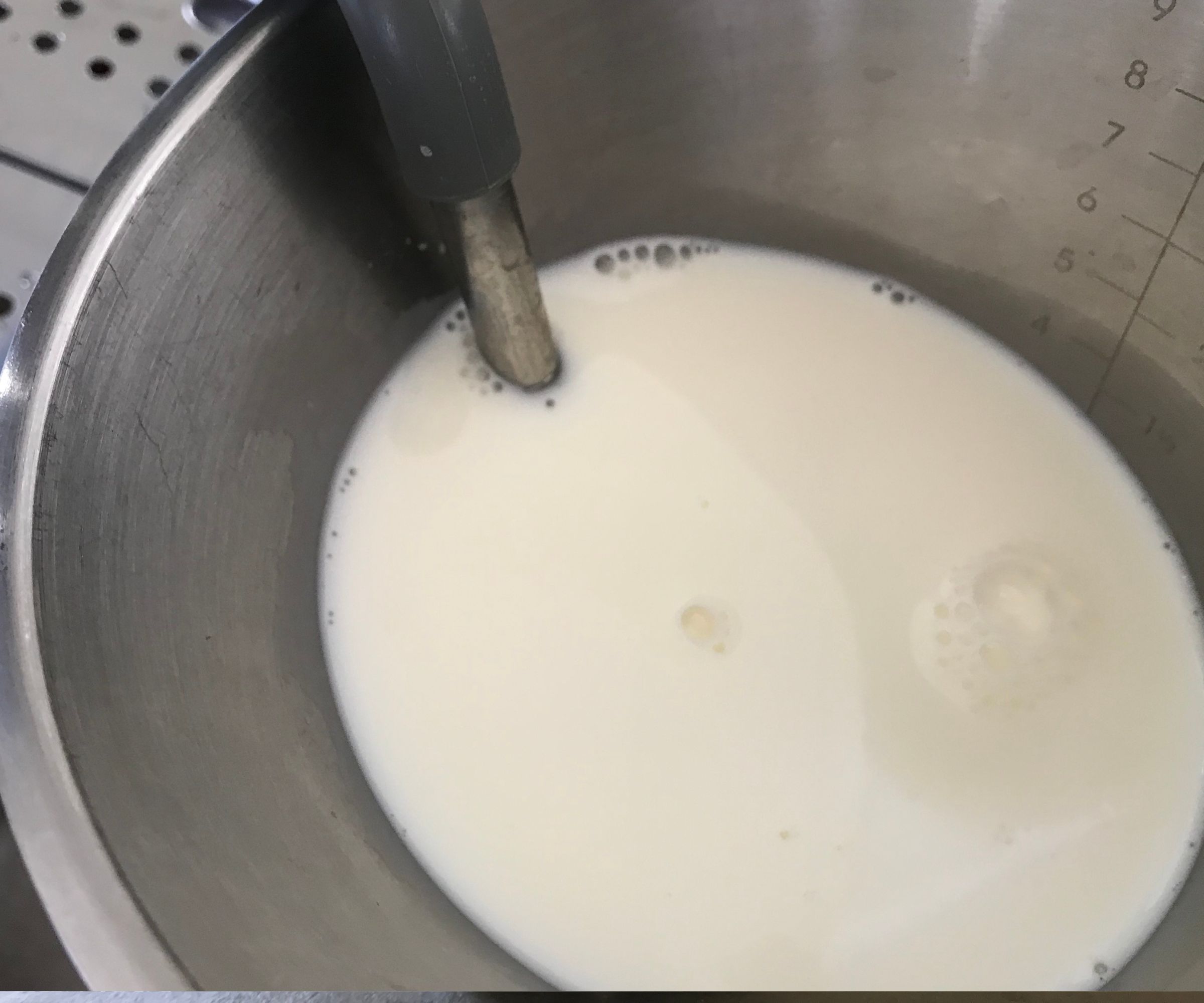
The cappuccino test is really all about milk textures. I used both dairy and oat milk to make cappuccinos in the Smeg and both worked equally well. It was frustrating not having a Smeg steam jug (luckily I have one already), but this was a little oversized for the slightly stubby wand, meaning I had to work with my angles and quantities quite carefully — not something that a beginner would enjoy.
As a result of the angles and faffing, my cappuccinos were good, but not as good as I would have liked them to be. I had to work the milk a lot harder after steaming it (banging my jug on the side) to get air bubbles out. The flavors were good though. The espresso really got to shine in the balance of sweeter oat and dairy milks. It was delicious.
Cleaning, storage, and maintenance
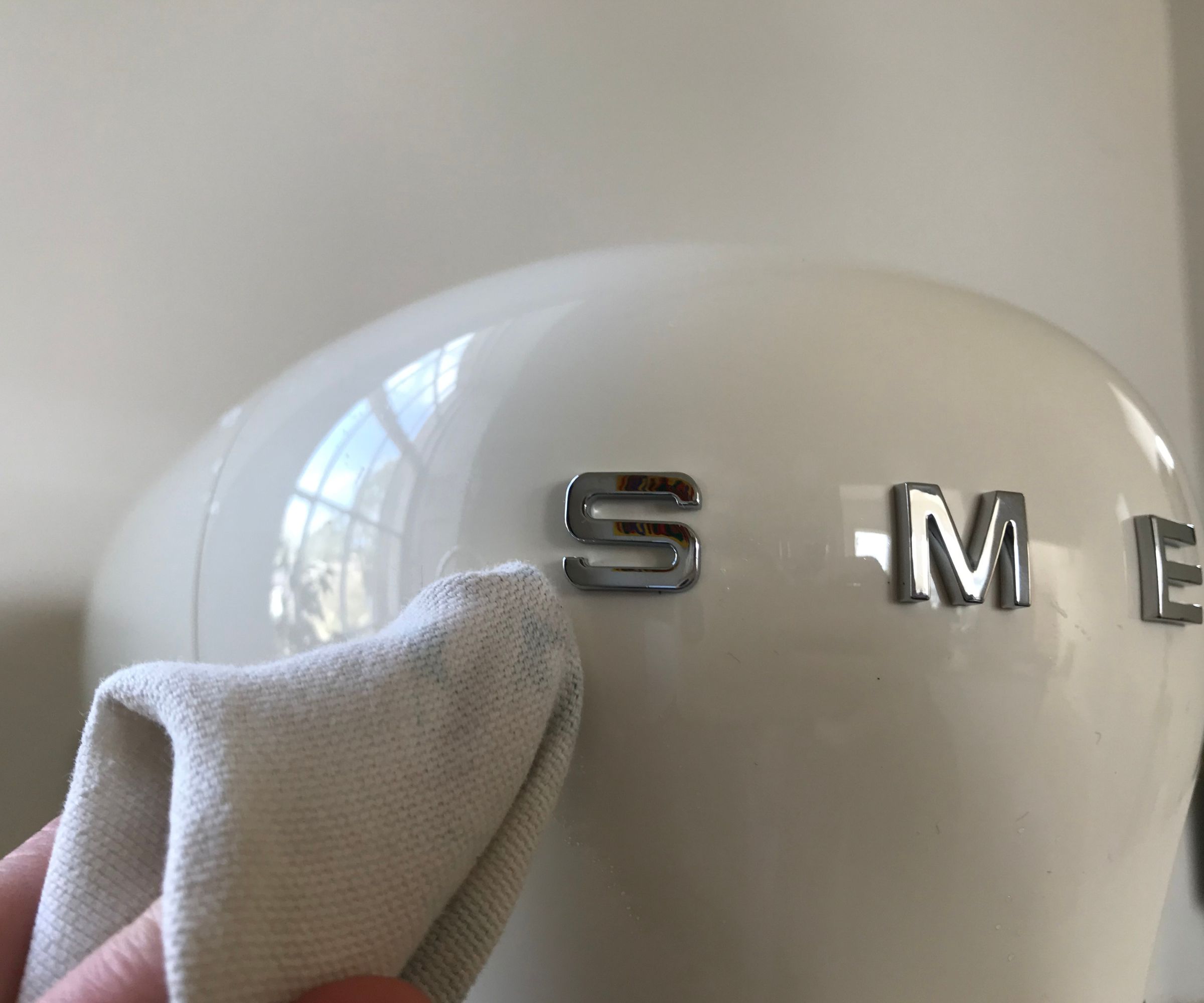
As this is such a small machine, it requires very little cleaning. The drip tray sides out, releasing some neat storage underneath too. This is easy to rinse, dry and re-fit. As long as you’re running regular rinse cycles and cleaning the steam wand after every use, you won’t need to do much maintenance on the Smeg. My word of warning would be that this won’t tell you if you need to clear the brew head or unclog the steam wand, you just need to know these things.
How does it rate online?
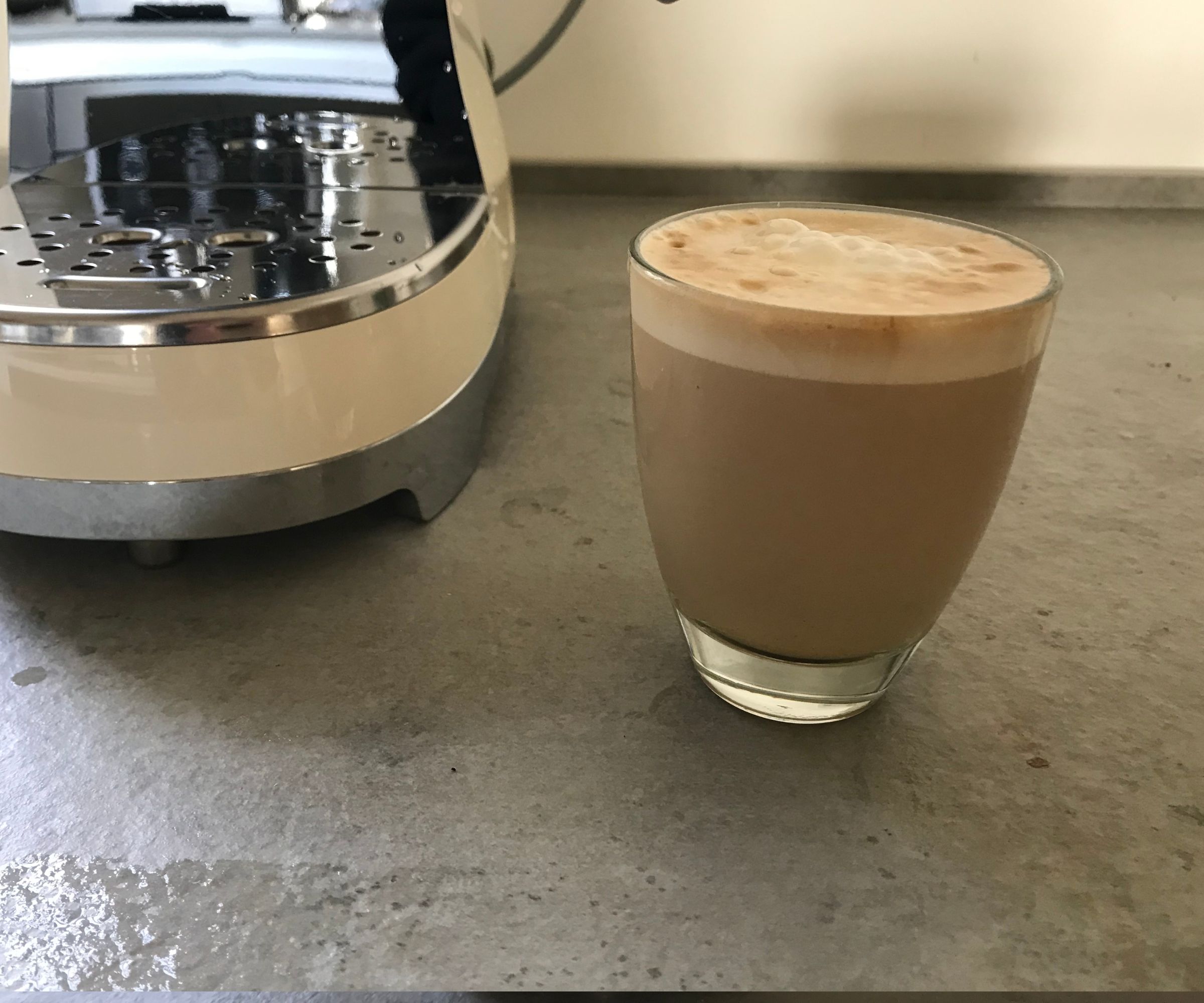
As you might expect, people love the Smeg’s aesthetics. Without fail, everyone commented on this as a beautiful espresso machine. People were generally happy with the curvy, colorful upgrades that the ECF02 has on its predecessor, praising the straightforward controls, beginner-friendly features, and coffee flavors.
As with the ECF01, lots of reviewers found that the steam wand was shorter than the average espresso machine. This makes the milk texturing process trickier than on some alternate machines, but it's nonetheless good. The machine is also very sensitive to coffee and grind size, so it took lots of people a little longer to get used to making expert coffee the first time around, but everyone got there in the end.
How does it compare?
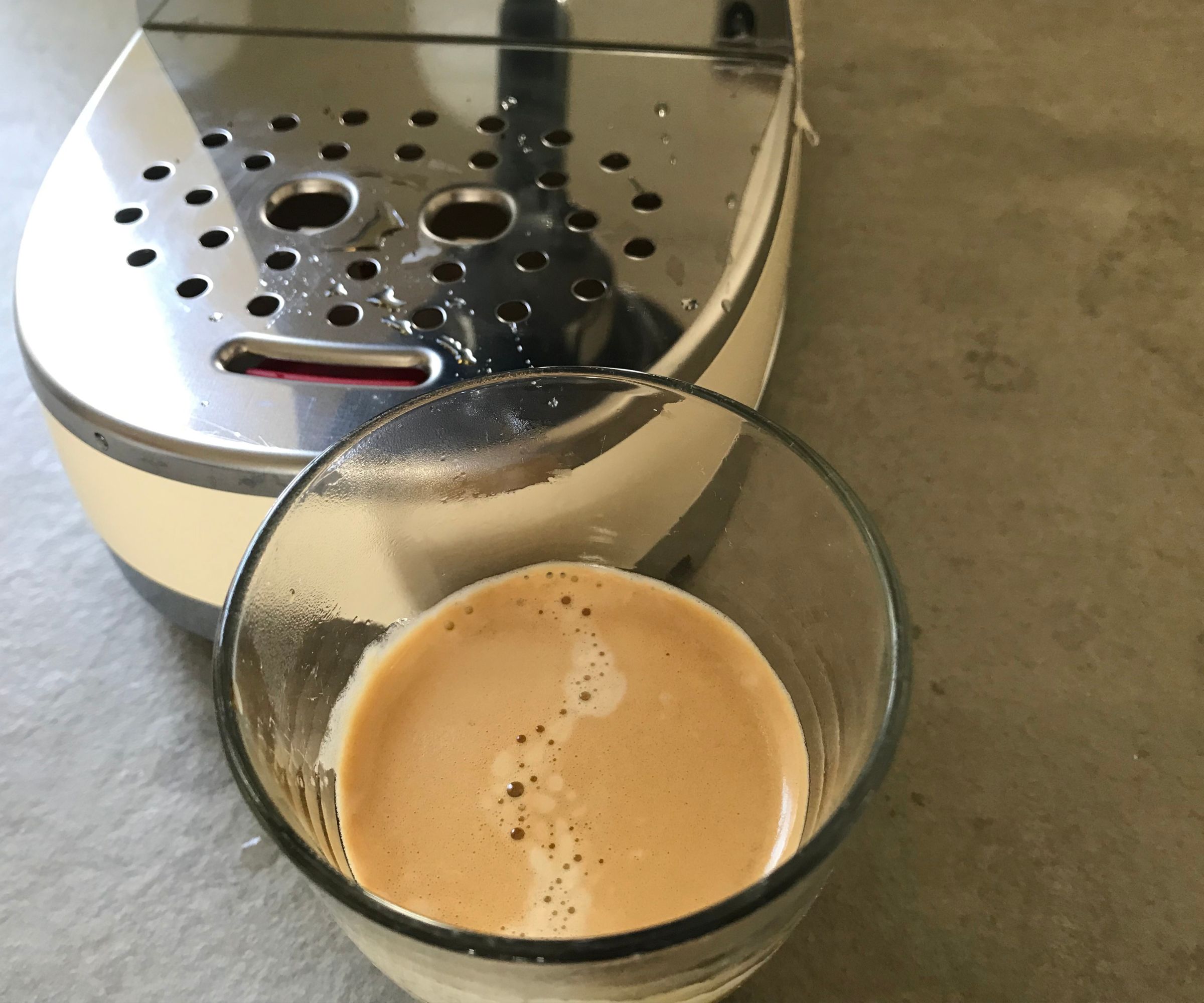
If you’re choosing between the older Smeg model and this one, I really think it’s a matter of aesthetics. They both can do essentially the same things, except one is all curves and chrome and the other is a little more boxy. The benefits of the boxy design mean that you can warm cups on top. Plus, there’s more space and storage options. Both require you to invest in a coffee grinder though.
If you like the small, svelte design of the Smeg but not the price tag, it’s worth looking at the KitchenAid. This is one of my favorite espresso machines, because it’s easy to use, available in a range of colors, and still makes good coffee. It’s not quite as attractive as the Smeg, but it’s more than half the price and possibly feels more durable. I didn’t have to use a hand to brace it when locking my portafilter into place, for example.
Should you buy it?
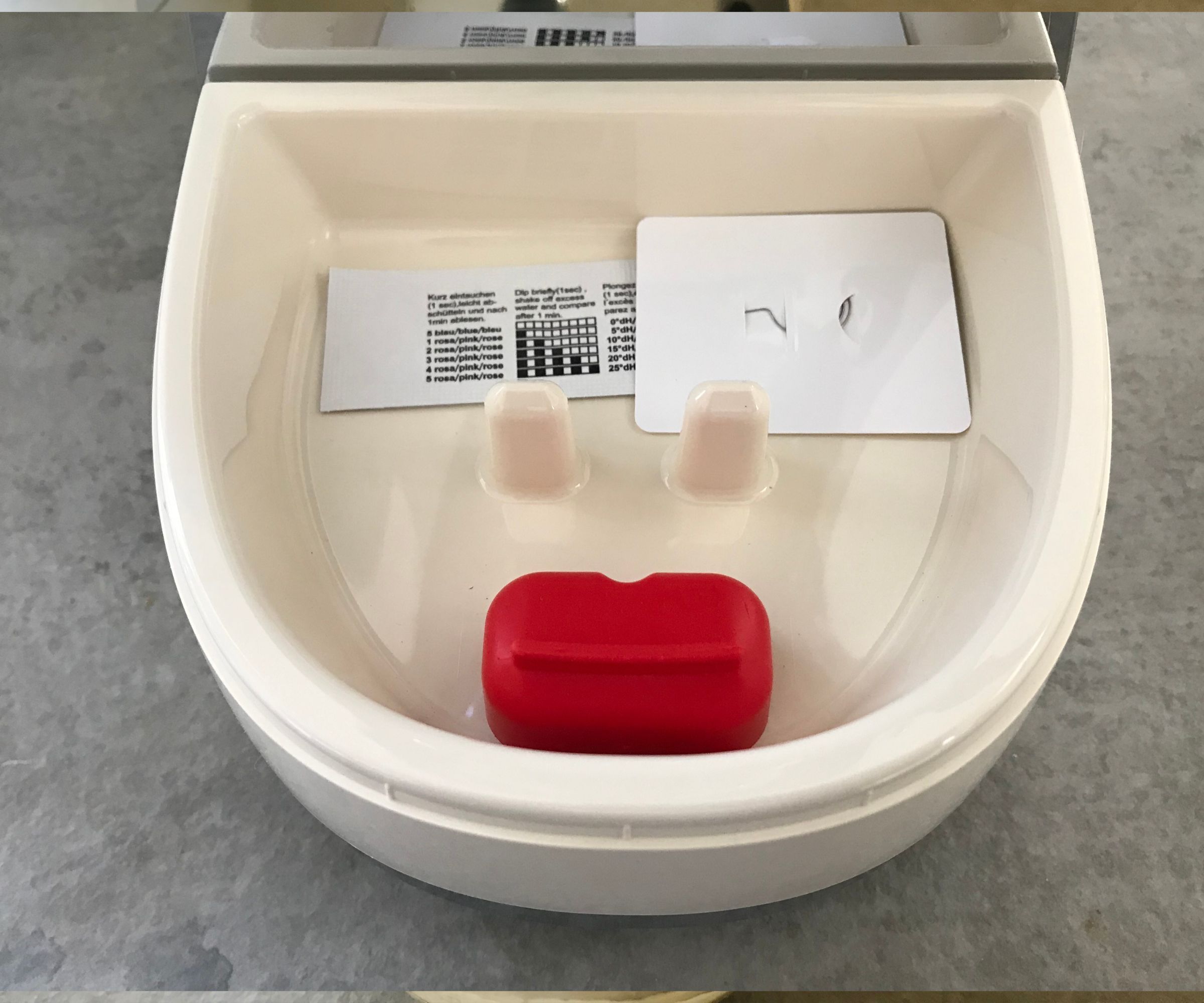
If you have the budget to invest in a more expensive espresso machine, the Smeg is worth every penny. It's well-designed, feels premium, and makes delicious coffee. The simple controls are better for beginners. This is great if you're new to coffee and want to make a style-statement. If you're an aspiring barista, you might be left a little wanting though.
How we test
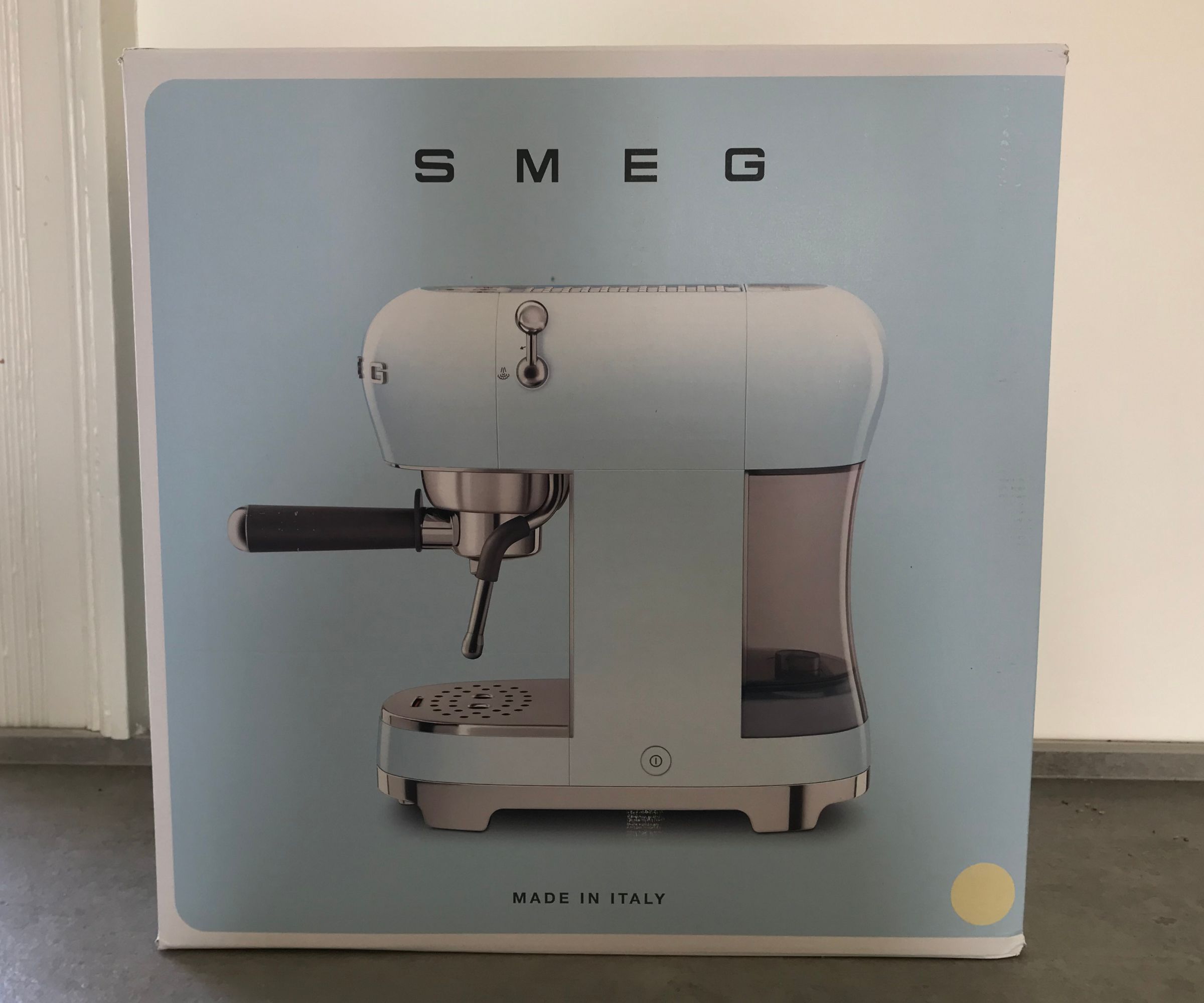
We take all of our espresso machines to our test kitchen, so we can replicate domestic use of every machine. It's also the perfect place to test the limits of each machine, so we make sure that we do. If a machine boasts a specific feature, we'll test it. We'll also look at day-to-day espressos and Americanos too. Most importantly, we always let you know how the coffee tastes.
We make notes on the whole process, from unboxing to cleaning, storage, and maintenance, so that you know everything you need to before making a purchase. If you'd like to know more, we have a page dedicated to how we test coffee makers.







